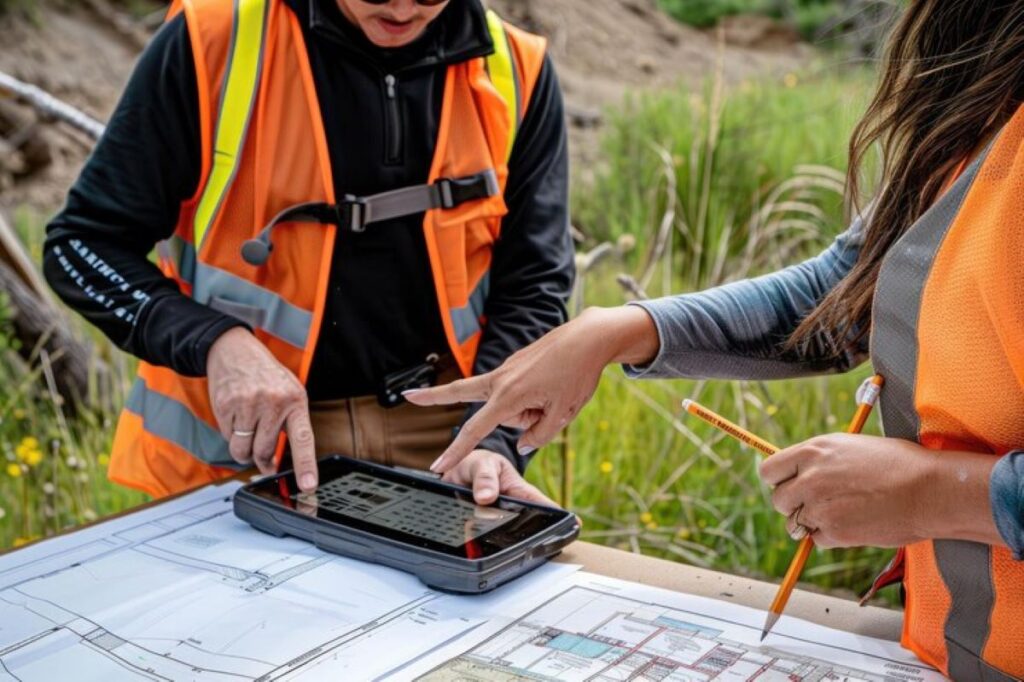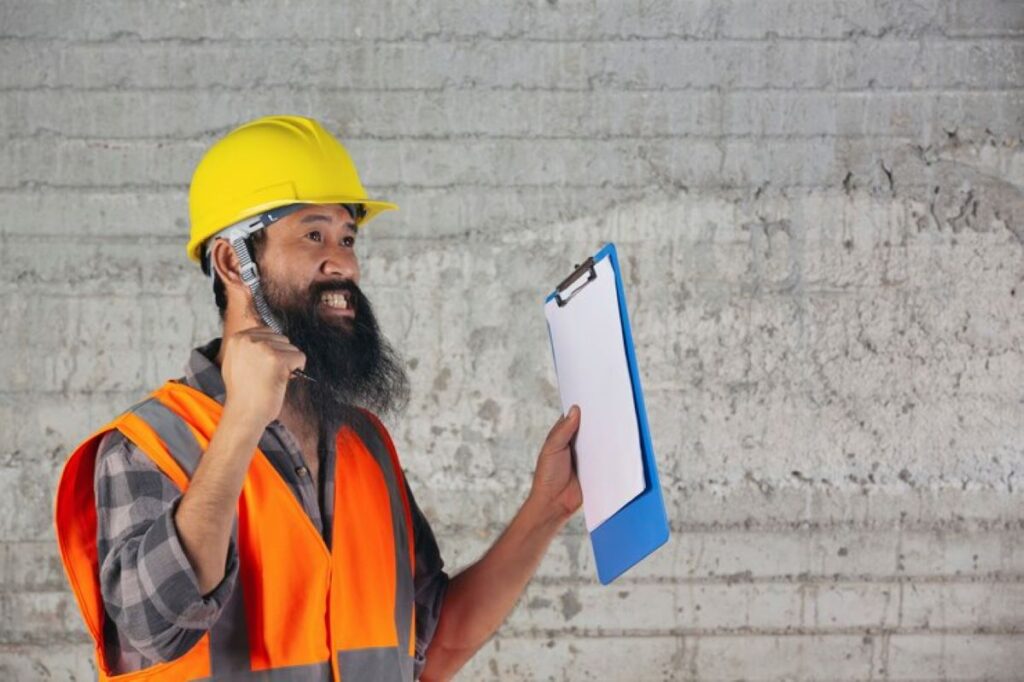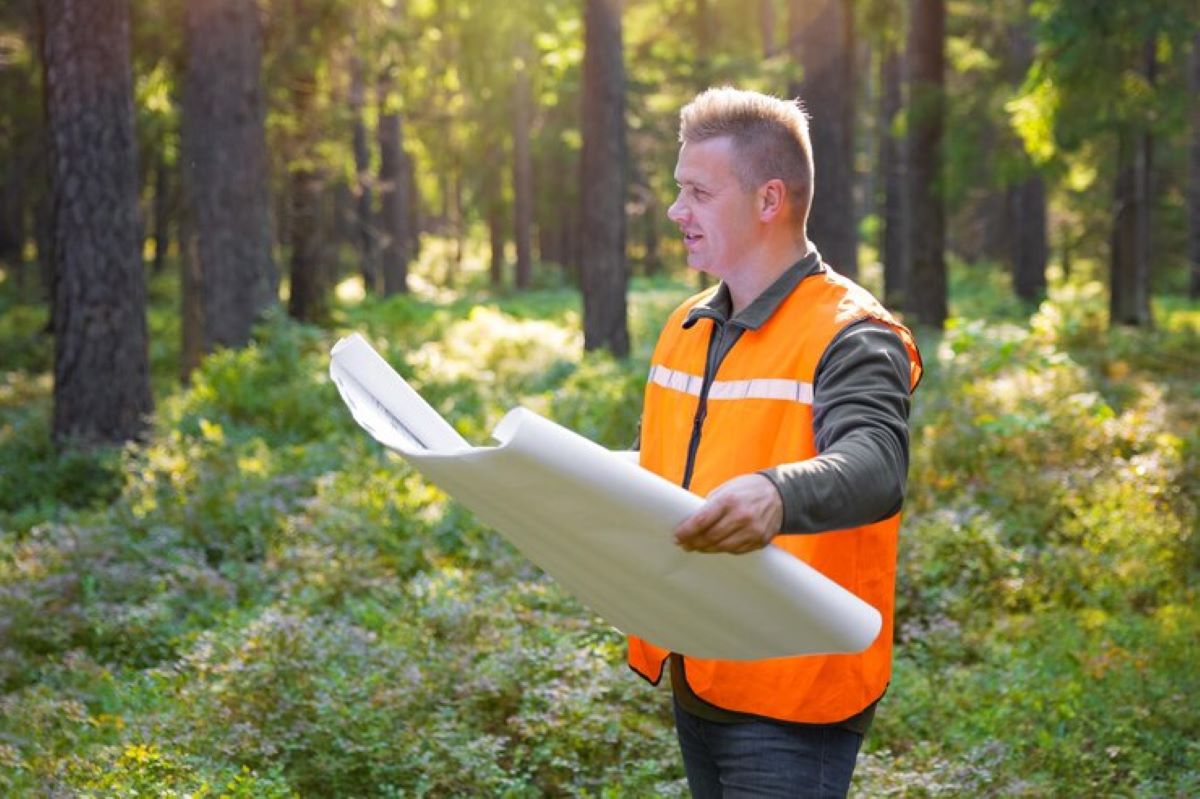Construction projects, regardless of size, require careful planning and execution to ensure successful outcomes. One of the most crucial roles in this process is that of a construction surveyor. These professionals play a pivotal role in site preparation, providing essential data and insights that can significantly affect the success of a project.
Understanding the role of a construction surveyor
A construction surveyor is responsible for measuring land and establishing exact positions of structures in the construction field, ensuring everything aligns with the plans. They work closely with architects, engineers, and construction teams to deliver precise measurements that guide the construction process.
Their work is fundamental not only during the initial phases of a project but throughout various stages until completion. By utilising advanced technology and methodologies, construction surveyors can provide critical information that aids in both planning and the execution of construction activities. The integration of tools such as drones and 3D scanning has revolutionised the surveying process, allowing for quicker data collection and enhanced accuracy. This technological advancement has also enabled surveyors to create detailed visualisations of the site, which can be invaluable for stakeholders in understanding the project’s scope and potential challenges.
Key responsibilities of a construction surveyor
The responsibilities of a construction surveyor are extensive and can vary depending on the project’s scale and requirements. Key duties include:
- Conducting detailed land surveys to identify property boundaries and topographical features.
- Preparing precise maps and charts that illustrate desired construction locations.
- Calculating land areas and establishing site elevations to ensure compliance with design specifications.
- Implementing and monitoring quality control measures throughout the construction phase.
- Collaborating with clients and stakeholders to address concerns and adapt to changes.
In addition to these responsibilities, construction surveyors often play a crucial role in risk management. By identifying potential issues early in the project, such as discrepancies in land measurements or unexpected geological conditions, they can help mitigate costly delays and ensure that the project remains on schedule. Their ability to adapt to changing circumstances and provide timely solutions is essential in a field where unforeseen challenges frequently arise. Furthermore, construction surveyors are often involved in post-construction evaluations, ensuring that the completed project meets all regulatory standards and client expectations.
Required skills and qualifications for a construction surveyor
To succeed, construction surveyors must possess a mix of technical and analytical skills. Essential qualifications include:
- A degree in surveying, civil engineering or geography.
- Proficiency in advanced surveying technology, such as GPS and GIS systems.
- Strong mathematical abilities for precise calculations.
- Effective communication skills for collaboration and reporting findings.
- Attention to detail to ensure accuracy and compliance with regulations.
Moreover, practical experience through internships or apprenticeships is highly valued in this profession, as it allows aspiring surveyors to gain hands-on knowledge of the tools and techniques used in the field. Continuous professional development is also essential, as advancements in technology and changes in regulations necessitate that surveyors stay informed about the latest practices and innovations. Networking within the industry can provide valuable insights and opportunities for career advancement, making it important for construction surveyors to engage with professional organisations and attend relevant workshops and seminars.

The critical part of site preparation in construction
Site preparation is a vital phase in any construction project, as it lays the foundation for all subsequent work. It involves clearing the site, grading the land, and preparing the ground for construction activities.
Proper site preparation helps to prevent potential issues that could arise during the construction phase, such as soil instability or drainage problems. An effectively prepared site contributes to the longevity and safety of the structures built on it. Without adequate site preparation, projects can face significant delays, increased costs, and safety risks. Furthermore, the importance of environmental considerations cannot be overlooked; responsible site preparation practices can help mitigate the impact on local ecosystems, ensuring that construction activities do not disrupt wildlife habitats or lead to soil erosion. Click here to get more about How a Construction Survey Can Save Time and Money in Your Project.
The process of site preparation explained
The site preparation process typically involves several key steps:
- Clearing the site by removing vegetation, debris, and any existing structures.
- Excavation to remove or add soil and create a level surface.
- Grading to ensure proper drainage and minimise erosion.
- Compaction of soil to enhance stability and support structures.
- Establishment of utilities, such as water and electricity connections.
Each of these steps requires precise measurements and careful planning, roles that construction surveyors are ideally positioned to fulfil. The use of advanced technology, such as 3D modelling and GPS, has revolutionised the way surveyors approach site preparation. These tools not only improve accuracy but also enhance efficiency, allowing for quicker identification of potential issues before they escalate into costly problems. Additionally, the integration of sustainable practices during site preparation can lead to better resource management and reduced environmental impact, aligning construction projects with modern sustainability goals.
Potential challenges during site preparation
Despite best efforts, various challenges can arise during site preparation. Common issues include unforeseen rock formations, poor soil conditions, and adverse weather affecting excavation and grading activities. These challenges can lead to delays and increased costs if not managed properly.
Surveyors play a crucial role in addressing these challenges. By conducting thorough assessments and adjusting plans as needed, they help ensure that potential issues are managed effectively to keep the construction process on track. Moreover, the collaboration between surveyors and engineers is essential in developing innovative solutions to overcome obstacles. For instance, when faced with unexpected geological conditions, engineers may need to redesign foundations or drainage systems to accommodate the site’s unique characteristics. This synergy not only aids in maintaining project timelines but also enhances the overall quality and safety of the construction work being undertaken.
The intersection of construction surveying and site preparation
The relationship between construction surveying and site preparation is integral to the overall success of construction projects. Surveyors are not merely involved in the initial surveying; their input continues throughout the site preparation phase and into construction.
This collaboration enables teams to adapt quickly to changing conditions and ensures that the construction is executed according to approved plans.
How surveyors contribute to effective site preparation
Construction surveyors contribute significantly to effective site preparation in several ways:
- They provide accurate location and elevation data to avoid potential design issues.
- They assist in identifying any environmental concerns, such as wetlands or protected areas.
- They help determine the best placement of structures based on site characteristics.
By fulfilling these roles, surveyors ensure that the project team has a clear understanding of the site’s limitations and opportunities, which is essential for successful planning and execution. Furthermore, their expertise extends to the use of advanced technology, such as GPS and 3D laser scanning, which enhances the precision of data collection. These tools allow surveyors to create detailed topographical maps and models that inform decision-making and design processes, ultimately leading to more efficient site preparation.
The impact of surveying errors on site preparation
Errors in surveying can lead to significant repercussions during the site preparation phase. A misplaced boundary or incorrect elevations may result in costly revisions or delays. Errors can also compromise safety and compliance with local regulations, leading to fines or legal issues.
This reinforces the importance of having skilled construction surveyors who employ precise methodologies and technology to minimise the risk of errors. Attention to detail, thorough data verification processes, and continual education on best practices are crucial for maintaining high standards in surveying. Moreover, the integration of Building Information Modelling (BIM) into the surveying process has revolutionised how data is managed and shared among project stakeholders. By creating a digital representation of the physical and functional characteristics of a project, surveyors can facilitate better communication and collaboration, ensuring that all parties are aligned and informed throughout the construction journey.

The value of a construction surveyor in project management
Construction surveyors add immense value to project management, serving as essential members of the project team. Their insights inform decision-making processes and contribute to maintaining timelines and budgets.
With their expertise, stakeholders can make informed choices about materials, designs, and methodologies, ensuring that projects proceed smoothly and efficiently.
Surveyors as a part of the project management team
As part of the project management team, surveyors play several pivotal roles, including:
- Providing feedback on design feasibility based on site conditions.
- Assisting with risk assessments that identify potential project hurdles.
- Coordinating with contractors to ensure alignment of construction practices with survey data.
This collaborative approach fosters a more cohesive construction process, where everyone’s expertise contributes to the project’s success.
The influence of surveying on project timelines and budgets
Accurate surveying can significantly influence project timelines and budgets. By providing precise data early in the planning process, surveyors help teams make better estimates while reducing the likelihood of unexpected delays or extra expenses.
A well-scheduled and budgeted project is more likely to achieve its goals; therefore, the role of the construction surveyor in this regard is critical. Their ability to foresee potential issues and address them proactively can keep projects on track while avoiding additional costs.
Future trends in construction surveying
The surveying profession is continually evolving, with advancements in technology and methodologies influencing how surveyors operate. Staying updated on these trends is essential for professionals in the field to remain competitive and effective.
As projects become more complex and technologically advanced, so too will the skills and tools necessary for success in the surveying arena.
Technological advancements in construction surveying
Recent technological advancements are reshaping how construction surveyors perform their duties. Innovations such as drones, 3D laser scanning, and Building Information Modelling (BIM) are becoming more mainstream in the industry.
Drones, for example, can quickly survey large areas, providing high-resolution images and data that enhance accuracy and efficiency. Similarly, 3D laser scanning captures precise measurements of structures, facilitating flawless design implementations and modifications.
The evolving role of a construction surveyor in the industry
As technology progresses, the role of the construction surveyor is also evolving. Today’s surveyors must not only possess traditional surveying skills but also be adept with modern technology and able to analyse complex data sets.
This shift necessitates ongoing education and adaptation within the surveying profession, ensuring that surveyors remain valuable assets throughout the construction process.
In conclusion, construction surveyors play a vital role in site preparation and the overall success of construction projects. Their expertise, skills, and technologies are indispensable for ensuring that projects are executed accurately, safely, and efficiently.


